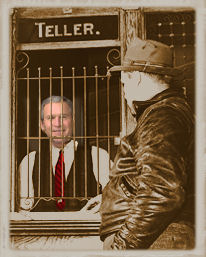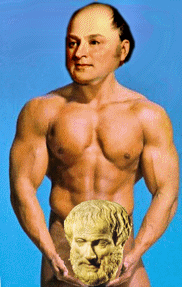This Joke Isn’t Kosher
 Wednesday, September 5, 2007 at 09:27AM
Wednesday, September 5, 2007 at 09:27AM  Quote: “You don’t make a hog fatter by weighing it.” Presidential candidate John Edwards, replying to a voter’s question about educational testing, in the Washington Post.
Quote: “You don’t make a hog fatter by weighing it.” Presidential candidate John Edwards, replying to a voter’s question about educational testing, in the Washington Post.
Figure of Speech: analogy (an-AL-o-gy), the figure of parallel cases. From the Greek, meaning “proportion.”
Edwards, a millionaire former litigator, appeals to the rural vote with folksy farmisms to show he’s a man of the land. Linking the No Child Left Behind law to hog fattening makes an excellent analogy, a figure that reasons from comparable cases. An analogy achieves the greatest rhetorical effect when it makes a huge semantic leap. It’s a form of reductio ad absurdum — a fallacy in formal logic but extremely apropos in the political pigpen.
Actually, farmers do weigh hogs for much the same reason tests weigh students’ knowledge: to tell whether the swill they’re fed has any effect. Still, Edwards’ analogy appeals to voters who think testing has become the end-all and be-all of education.
Beware of using analogies that fail to match your ethos. While Edwards is no more a pig farmer than Senator Clinton is, Figaro cringes at the thought of Hillary making a hog joke. Only Edwards has the southern accent to pull it off.
He reminds us of the Texan expression, “All hat and no cattle.” But in politics, it’s all about the hat.
Snappy Answer: “A drawl makes great manure.”





